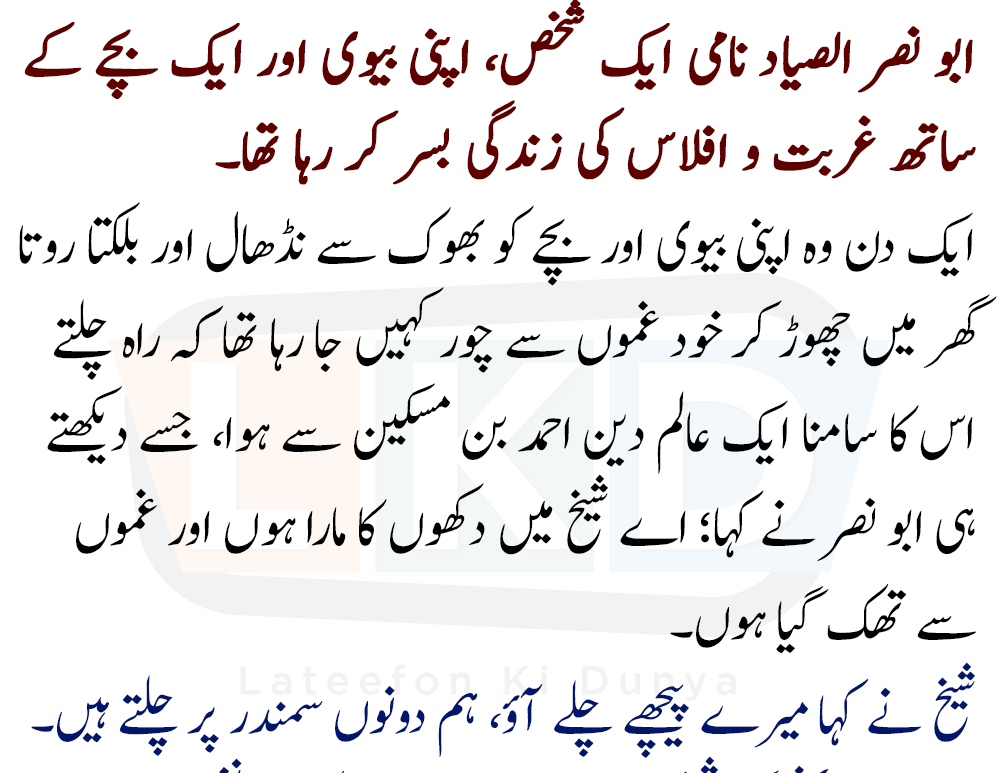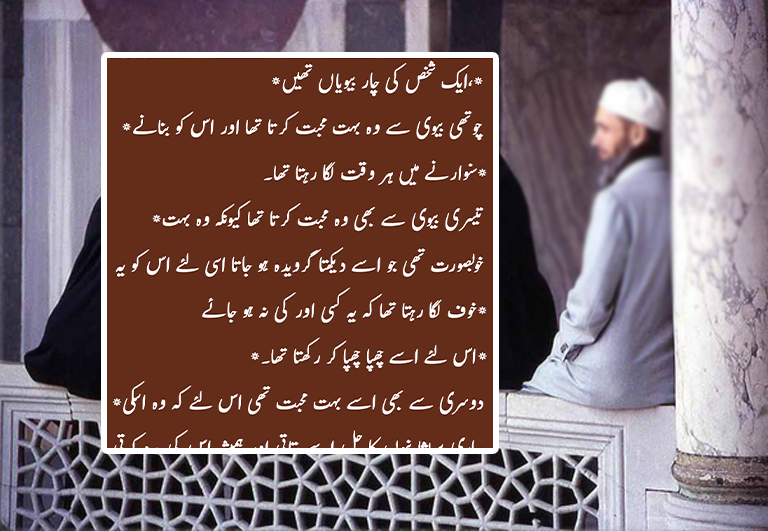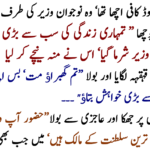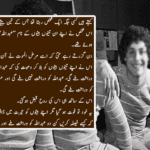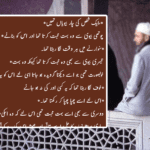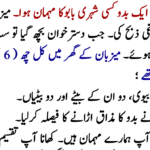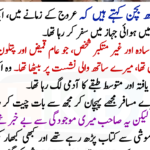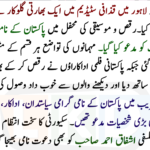There once lived a man named Abu Nasr As-Sayyad who, along with his wife and child, endured a life of extreme poverty and hardship. One day, overwhelmed by the sight of his wife and child weakened by hunger and crying bitterly, he left his home, burdened with sorrow. As he wandered, he encountered a wise scholar, Sheikh Ahmed bin Miskin. Seeing the profound despair on Abu Nasr’s face, the sheikh inquired, “What troubles you so deeply, my friend?”
Abu Nasr replied, “O Sheikh, I am crushed by sorrow and weary of my miseries.”
The sheikh gently said, “Follow me to the sea, and let us seek solace there.”

Upon reaching the sea, Sheikh Ahmed instructed Abu Nasr to perform two units of voluntary prayer (Nafl). After completing his prayer, the sheikh handed him a net and said, “Cast this net into the sea while reciting ‘Bismillah’ (In the name of Allah).”

To Abu Nasr’s astonishment, on his first try, he caught an enormous and magnificent fish. The sheikh then advised, “Take this fish to the market, sell it, and use the money to buy some provisions for your family.”
Grateful, Abu Nasr went to the city, sold the fish, and with the money he earned, bought a savory meat-filled bread and a sweet pastry. He then returned to the sheikh and offered him a portion of the food as a token of his gratitude. However, the sheikh declined, saying, “Had you cast the net for your own gain, you wouldn’t have caught anything. The good deed I did for you was ultimately for my benefit, not for any reward. Take these loaves and feed your family.”
Filled with joy, Abu Nasr set off towards his home. On his way, he encountered a starving woman and her distressed son. Abu Nasr’s heart ached as he saw their plight. He looked at the loaves in his hands and pondered, “What difference is there between my starving wife and child and this woman and her son? Both are equally in need.”
Unable to ignore the woman’s tears, he lowered his head and handed her the loaves, saying, “Take these and feed yourself and your child.” The woman’s face lit up with joy, and her son smiled brightly.
With a heavy heart, Abu Nasr continued towards his home, wondering how he would face his hungry family. As he walked, he saw a town crier calling out, “Is there anyone who can lead me to Abu Nasr?”
The people pointed to Abu Nasr and said, “Here he is!”
The town crier approached Abu Nasr and said, “Your father entrusted me with thirty thousand dirhams twenty years ago but did not specify what to do with the money. Since your father passed away, I have been searching for you. Today, I finally found you. Here, take these thirty thousand dirhams; they belong to you.”
Abu Nasr, now unexpectedly wealthy, said, “I became rich without any effort on my part. I built many homes and expanded my business. I never hesitated to give in charity in the name of Allah. Often, I would give a thousand dirhams at a time in gratitude. I took pride in my generosity and the extent of my charitable deeds.”
One night, Abu Nasr dreamt of the Day of Judgment. He saw a grand scale set up in the vast field. The announcer called out, “Bring forth Abu Nasr, so that his deeds may be weighed.”
He saw his good deeds placed on one side of the scale and his sins on the other. To his dismay, the side of his sins was heavier. He cried out, “Where are my charities that I gave in Allah’s way?”
The angels then placed his charitable acts on the scale. However, each donation, despite being of significant monetary value, was tainted with vanity, self-promotion, and insincerity. These impurities rendered his deeds lighter than cotton. The side of his sins remained heavier.
In despair, he wept, “How will I ever attain salvation?”
The announcer asked, “Is there any other deed left?”
An angel responded, “Yes, there are the two loaves of bread that have not yet been weighed.”
The two loaves were placed on the scale, causing it to tip slightly in favor of his good deeds, but not enough to surpass his sins.
The announcer inquired again, “Is there any other act left?”
The angel answered, “Yes, the tears of the woman who received the loaves.”
The woman’s tears were placed on the scale, whose immense weight brought the side of his good deeds to balance with that of his sins. Abu Nasr felt a glimmer of hope.
The announcer asked once more, “Is there any other deed remaining?”
The angel replied, “Yes, there is the smile of the woman’s child.”
When the child’s smile was added to the scale, the side of Abu Nasr’s good deeds became significantly heavier than that of his sins. The announcer proclaimed, “This man is saved.”
Abu Nasr awoke from his dream, his heart filled with gratitude and realization. He said to himself, “O Abu Nasr, today you have been saved not by your grand donations but by the two humble loaves of bread given with true sincerity.”
Moral:
This story teaches us the profound impact of sincere, selfless acts of kindness. While large donations and charitable acts are valuable, their true worth lies in the purity of intention behind them. It is the genuine compassion and empathy in our hearts that Allah values the most.
